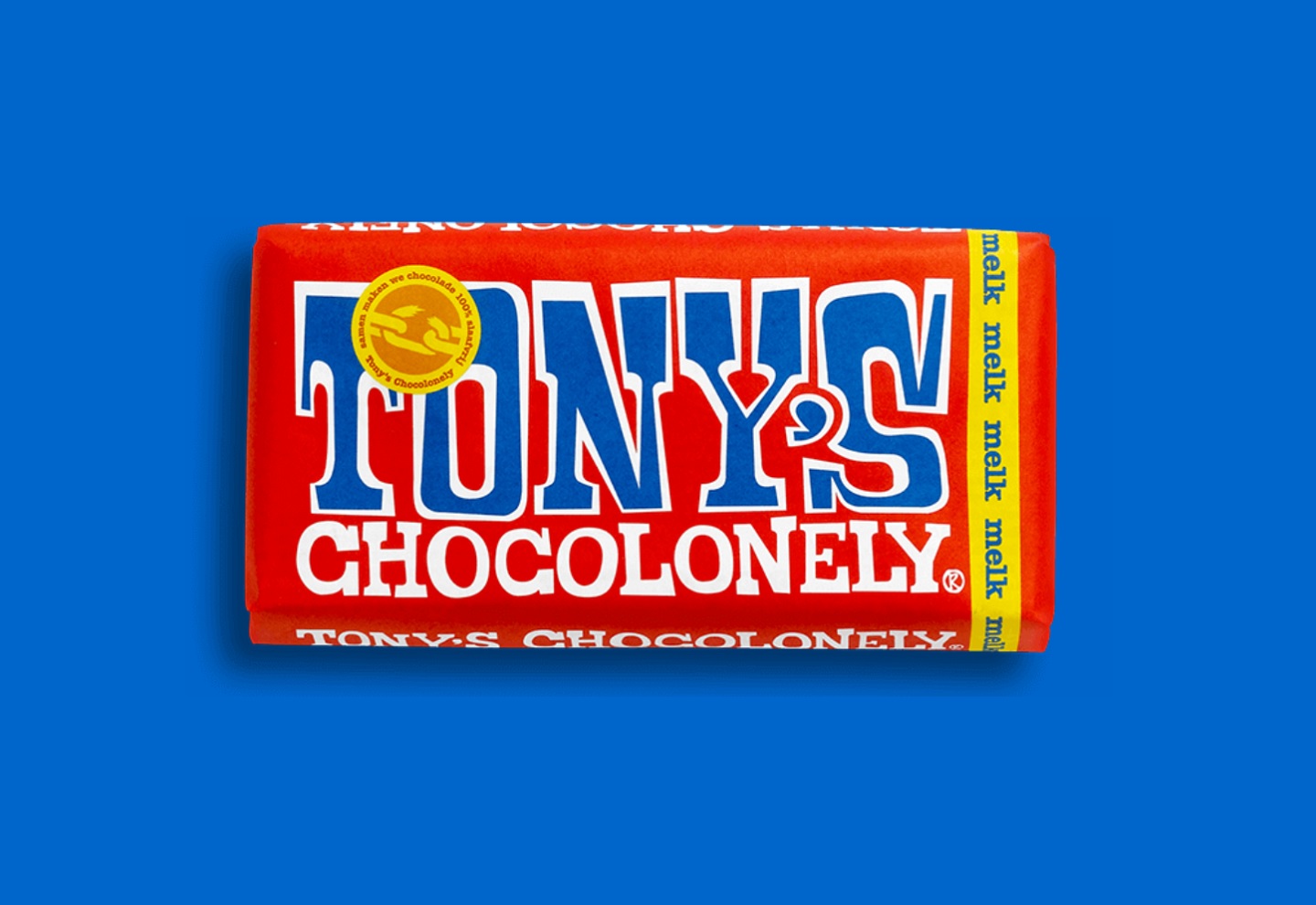
How a chocolate company cleaned up its supply chain and started the transformation of an industry
What gives a brand the ability to stand head and shoulders above a saturated marketplace? What enables it to win loyalty and enthusiasm from its employees and its audience? What gives it staying power to achieve growth and positively disrupt the status quo within an established industry for the social good?
One word: Purpose.
Tony’s Chocolonely chocolate – created in the Netherlands in 2005 and now sold globally – offers the perfect example of how one man’s mission to end child slavery in chocolate production influenced consumers and industry for the better.
It began with a television programme. In 2005, Dutch investigative reporter, Teun van de Keuken highlighted exploitation rife within the chocolate industry in an attention-grabbing way. He was filmed eating bars of chocolate and then presented himself to Dutch police as a knowing accessory to illegally produced goods. He hired a lawyer to help prove himself guilty and submitted the testimonies of the child slaves forced to work within the cocoa industry in which trafficking was commonplace. Understandably, the show’s shock tactics made a huge impression on Dutch viewers.
Following broadcast, van de Keuken went further: he conceived a mission to eradicate child slavery in chocolate production one bar at a time – Tony’s Chocolonely was born with a purpose: to produce chocolate without exploitation or slavery.
Over the next three years, the company proved that exploitative practices could be eradicated from its supply chain and consumer awareness leveraged to respond to big-picture ethics. It also achieved a credible turnover of €1 million. Having accomplished considerable success on its founding principles, it was ready to grow but how could this be done without losing its essential ethos?
Henk Jan Beltman joined the company and became its major shareholder in 2011. Having worked at Innocent Drinks, he had experience of how to build a brand on a clearly defined purpose. He also knew that once Innocent sold to Coca Cola, its ethos was subsumed by the drinks giant’s profit-over-principle approach. He knew that the big corporate approach would neuter the brand.
Jan Beltman decided to double down on purpose and couple it with expansion. Five key values underpinned the company’s purpose: tracing every ingredient to its source, paying farmers higher prices, helping them improve productivity, encouraging modernization and crop diversification, and investing in farm co-operatives to empower small-scale farmers in the long term.
Raising consumer awareness, leading the industry by example and inspiring action globally by working with NGOs and governments embedded the company’s core values – even in a catch-22 situation where ethics had to be chosen over profits.
That was put to the test in 2011 when a Dutch documentary uncovered child labor practices in Turkey’s hazelnut harvest. Tony’s Chocolonely responded by stopping its use of Turkish hazelnuts and working with other companies to investigate and influence labor practices in Turkey.
The company had acted contrary to expectations and purpose had retained its central tenet. Jan Beltman referred to ‘the rocking chair test’ he applied to such dilemmas. He would imagine himself as a 90-year-old in a rocking chair considering the good he had done in his life: the people he had chosen to serve over the profits.
By 2017 the company’s net revenue had reached €44.9 million. It was the number three chocolate brand in the Netherlands and had secured itself in German, Swedish and US markets. It had also started to shame its competition into action.
The six Swiss chocolate giants: Barry Callebaut, Choclat Frey, Chocolats Halba, Lindt & Sprüngli, Mondelēz and Nestlé committed to structurally shifting to sustainable cocoa sourcing. Tony’s Chocolonely’s purpose-driven model had achieved enviable growth and started the transformation of an industry.
By placing purpose at the centre of its brand, a small start-up with a big mission proves it is possible to improve lives, capture hearts and minds and establish itself as a force to be reckoned with by far bigger competitors.
By Jan van der Kaaij, IMD EMBA 2005 and Executive-in-Residence, and IMD Professor Dr. Benoit Leleux, authors of Winning Sustainability Strategies.
Research Information & Knowledge Hub for additional information on IMD publications
The case follows Kristin Hull, founder and CIO of Nia Impact Capital, a mission-driven investment firm in California, as she faces a pivotal decision in July 2025: Should she file a shareholder resolution against Tesla, Inc.? Hull and Nia have eng...
in I by IMD
Research Information & Knowledge Hub for additional information on IMD publications
Research Information & Knowledge Hub for additional information on IMD publications
Research Information & Knowledge Hub for additional information on IMD publications
in I by IMD
Research Information & Knowledge Hub for additional information on IMD publications
in I by IMD
Research Information & Knowledge Hub for additional information on IMD publications
Research Information & Knowledge Hub for additional information on IMD publications
Research Information & Knowledge Hub for additional information on IMD publications
Research Information & Knowledge Hub for additional information on IMD publications
Research Information & Knowledge Hub for additional information on IMD publications
in I by IMD
Research Information & Knowledge Hub for additional information on IMD publications










